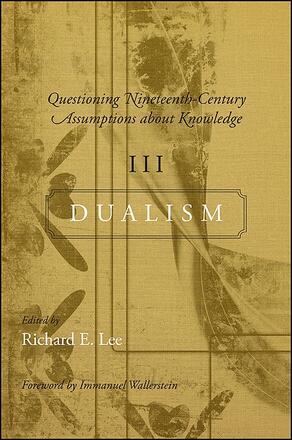
Questioning Nineteenth-Century Assumptions about Knowledge, III
Dualism
Alternative formats available from:
A provocative survey of interdisciplinary challenges to the concept of dualism.
Description
During the last few decades, the fundamental premises of the modern view of knowledge have been increasingly called into question. Questioning Nineteenth-Century Assumptions about Knowledge III: Dualism provides an in-depth look at the debates surrounding the status of "dualism" in the sciences, social sciences, and the humanities in detailed and wide-ranging discussions among experts from across the disciplines. The extent to which the questionable necessity of a transcendent nomos; individualistic approaches versus systems ontology; rationality—material and formal—and how scholars might overcome the two cultures divide might impinge on the possibility, but not the inevitability, of progress are among the issues explored here. Weaving together in-depth articles and invigorating follow up discussions, this volume showcases debates over the status and validity of dualism. Of special interest are developing alternatives to traditional dualistic categories through an innovative, new approach based on biological naturalism; challenges to the dualism of people and things; the imperfectness and subjectivity of perception; and the overcoming the dualism of philosophy and science.